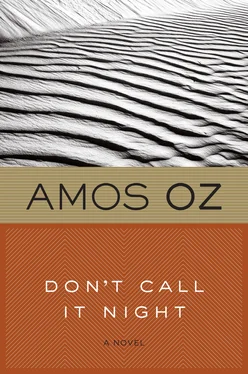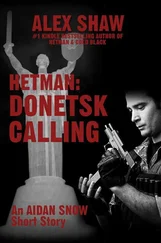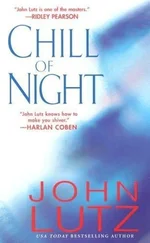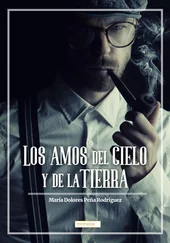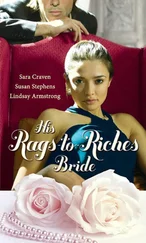While I wrapped potatoes in foil preparatory to baking them, I told him about Benizri and I almost told him about what I almost did on my way home. I didn't want to talk about the image of the good policeman, even though I knew Theo wouldn't mock me. Slowly, intent as though on an intellectual effort, he folded the last napkin and tucked it into the holder. As if this one were more special or more complicated than the others. He said calmly: He's quite a little genius, that Benizri. He also said: It's not easy for you, Noa. These words made me hold back my tears.
After ice cream and coffee I asked him what he wanted us to do this evening. We could catch the second showing of the sexy comedy at the Paris Cinema. Unless he had a better idea. Whatever. He turned his head and squinted at me, and his broad, peasant head at that moment conveyed an amused blend of affection, suspicion and shrewdness, as though he had discovered some detail in me that had eluded him up to now, and decided that it actually worked in my favour. Glancing at his watch he said: Right now I could take you out and buy you a new dress, for instance. Only the shops are closed.
Instead we left the dishes on the table and hurried to catch the second show at the cinema. The street lamps in the square by the traffic lights were feeble; only the Monument to the Fallen was lighted up, by a pale yellow beam from the bushes. A solitary, skinny soldier sat on the iron railings, drinking beer out of a can. His eyes were riveted to the legs of a girl in a red miniskirt who had her back to him. As we walked past, he turned to look at me. It was a desperate look of desire held in check by cowardice. I put my arm round Theo's waist. I said: I'm here, how about you? He laid his hand on my hair. That supper you made for us, he said, wasn't a meal, it was a work of art. I said: What do you think, Theo? Muki Peleg said to me once that you and I are like each other in some way. I found that quite funny: In what way are we like each other?
Theo said: Muki Peleg. Who's that? You mean that agent. The clown with six fingers on his left hand. A bit over the top, isn't he? A downmarket Casanova? Wanders around in a T-shirt that says Devil's Tear? Or am I mixing him up with someone else? Stop summing up, I said; you're always doing it.
It was a British film, ironic and too clever, about an intellectual woman publisher who gets worked up about a Ghanaian immigrant. After giving herself to him once out of curiosity she falls for him so passionately that she becomes his slave, physically and financially, and then she becomes enslaved to his two violent brothers as well. The comical side was mainly in the relations between her family, who are radical Third-World-lovers and supporters of downtrodden races, and the boyfriend and his brothers: under a thin layer of broadminded tolerance the most ordinary, base prejudices kept bubbling up. There were some telling visual cuts from elegant modern bohemian drawing rooms to run-down kitchens in the slums, and back to book-lined rooms with displays of African art. Halfway through I whispered to Theo, Love will win, you'll see. A quarter of an hour must have elapsed before he whispered back: There isn't any love here. It's just Frantz Fanon and the downtrodden rebelling and getting their sexual revenge.
When we got home he went to the kitchen and came back ten minutes later with a jug of mulled wine and glasses. We drank almost without talking. Something in his eye made me cross my knees. Theo, I said, there's something you ought to learn. You don't put honey in mulled wine, you put it in tea. In mulled wine you put a little lemon. And why did you bring these glasses? They're for cold drinks. We've got different glasses for mulled wine, the smaller ones. You don't care any more. It's all so insignificant.
In bed we didn't speak. I put on my demure white nightie, like a girl from a religious boarding school, he said once, and he came to my room naked apart from an elastic bandage round one knee because of an old injury. I imagined I could feel with my fingertips the progressive lightening of the hair on his arms and chest, from dark black to grey to ash to silver; his body was tough and compact but his desire tonight seemed almost separate from him, as if what he really wanted was to enfold or encircle all of me, as if he longed to comprehend or include me, to have me in his debt, and he was so intent on reaching all of my skin that he hardly cared what his own body would receive, if anything, as long as I was curled up in the fetal position and wrapped in his body like a chick under a wing. I wanted and yet didn't want to surrender to him, to obey him, to give him the power to give and give and give, and yet I slid out of his embrace, from his delicious pampering, and I made him lie on his back and not interfere in what was being done to him, until the point when we were quits, and from then on to the end we were both for each other, like a duet for four hands, we may even for a moment have resembled two devoted parents bending over a cot, intently, heads touching, playing with a baby who returns love for love. Afterwards I covered him with a sheet and ran a finger across his strong peasant brow and his greying military haircut until he fell asleep and I stood up and walked with bare feet to the kitchen and cleared away the supper things and washed and dried the dishes and the mulled-wine glasses that were really cold-drink glasses and where did he get the idea of putting honey in, strange, old Gleam in Your Eye, what did he mean when he said it's not love, it's the downtrodden rebelling? I put everything away and changed the tablecloth. Theo did not wake up. As if tonight I had passed him all my own powers of sleep. Then I went out and took over his place on the balcony facing the desert. I remembered Benizri saying that at first it was all sand and fantasies here and I remembered the religious typist, Tikki or Rikki, the one who had a baby by a basketball player who didn't want to know now, and the baby turned out to be a mongol, or as the crimson woman said a Mongolian. And I thought about the lovesick chimpanzee, and the can of sugar lumps, and the boy who was once a child with blinking eyelids and who seemed to live inside a bubble of winter even in summer, perhaps because I dimly remembered him in a green sweater and brown corduroy trousers in a class where everyone else wore shorts. Although I was not entirely sure now about the corduroy trousers. Whatever the poet did or didn't want to say gets in the way of the poem? I should have tried to initiate a conversation. I should have invited him here, home. I should have got him talking. All I did was flit across his loneliness without stopping. Another time he said he thought words were a trap. I don't understand now why I didn't realize what he was saying was virtually a cry for help: "And over all there hangs a smile, fading and faint and painful", as Ezra Zussman wrote in a poem about autumn evenings.
Above the hills rose a saracen crescent moon that bathed in pallor the waste plots and apartment blocks. There was not a single lighted window. The street lamps still shone unnecessarily and one of them kept flickering: insignificant. A cat passed beneath my balcony and vanished among the bushes. Beyond the hills there was a faint salvo of shots, followed by an echoing rumble, and again a cold silence, which touched my skin. I also remembered the aunt who worked in the bank and died just two days after they found the boy. A plain, desiccated woman with short coppery hair secured with a kind of plastic bow. And she had a funny habit, when you sat down facing her in the bank and talked to her, of covering her mouth and nostrils with her freckled hand, as though she was always anxious that she might have bad breath, or more likely that you did. She used to end every conversation by saying, "That's one hundred percent okay", which she always uttered in a monotone. A rustling passed through the darkened garden as though my thoughts about the dead had left me and gone down there to crouch among the oleanders. As though the twisted remains of a dog were crawling down there. For a moment I thought the old bench under the bougainvillaea bower was broken: the moonlight had altered the angles, the shadows of the struts of the bench had got jumbled up with the struts themselves, and the bench now looked like the broken reflection of a bench in rippling water. What did Avraham Orvieto mean when he said in the staff room, as though referring to a fact known to everyone except me, that I was the only one the boy liked? Maybe I should have asked him to show me his son's letters, especially the one where he mentioned the pencil that never existed.
Читать дальше
